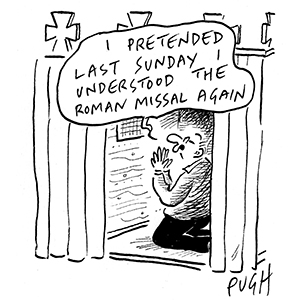Archbishop Diarmuid Martin of Dublin has expressed frustration at the lack of progress in transferring patronage from Catholic schools in Ireland’s primary school sector to non-Catholic patrons, warning that there is a “stubborn reluctance” in the Church to change.
In an address delivered in the diocese of Würzburg in Germany, the archbishop said he had advocated a process of divestment or transfer for a substantial number of Catholic schools in an effort to foster greater pluralism in education so as to reflect the country’s changing demographics.
A major debate is taking place in Ireland over the patronage or governance of schools, the role of religion in schools, admissions policies and the availability of school places.
In a bid to provide greater choice for parents, particularly those of other faiths and none, the Forum on Patronage and Pluralism in the Primary Sector was set up in 2011. Parental surveys were conducted in 43 areas around Ireland and it was recommended that Catholic primary schools in 25 areas transfer to multidenominational patrons such as Educate Together. But just 10 transfers from Catholic schools to multidenominational ones have been completed so far.
The Church has dominated the education sector in Ireland since the nineteenth century.
However, the need to transfer some religious-run schools to new multi- or non-denominational patrons is widely recognised as Ireland becomes more religiously and culturally diverse.
Almost 90 per cent of the state’s 3,200 primary schools operate under religious patronage and are almost fully financed by the state. Of these, over 2,800 are operated by Catholic patrons; yet under 78 per cent of the population registered as Catholic in Census 2016.
In Germany, in his paper, “The challenge for the Church in the twenty-first century”, Archbishop Martin said divestment would open up the possibility of more clearly defining the Catholic nature of Catholic schools. He said that though the political relationship between Church and state in Ireland today was “one of prudent distance”, there was a growing number of vocal supporters of a “much more hostile relationship” between Church and state, particularly in relation to education.
If enrolment policies become more diversified, equality and non-discrimination legislation would be used to challenge any exclusive denominational character in the ethos of a state school, except where necessary to protect the rights of minorities. The archbishop suggested that, in a more fractious Church-state climate, it could become more difficult to maintain “a true Catholic ethos in Catholic schools”.
The issue has also moved into the political arena. A proposal to remove the rights of faith schools to have a religious ethos and to require religious education to take place outside school hours was defeated in the Irish parliament last May. But the Education minister, Richard Bruton, has said he hopes to introduce a bill to remove the so-called “baptism barrier” as an admission criterion to oversubscribed Catholic primary schools in the autumn.
Mr Bruton said on RTÉ Radio that it was unfair that parents feel they need to baptise children in order to get a place at a local school.
However, the general secretary of the Catholic Primary Schools Management Association said that in terms of school admissions, there is a buildings barrier rather than a baptism barrier. Seamus Mulconry told RTÉ the real issue is a lack of resources, not religion. Over 95 per cent of Catholic primary schools had students who are not Catholic and do not receive the Sacraments, he said.
Speaking in Knock on Sunday, the leader of the Catholic Church in Ireland, Archbishop Eamon Martin, said it was important to remember that parents, who are the primary educators, are entitled to look for a Catholic education for their children. He said those who disliked taxpayers’ money being spent on Catholic education tended to forget that members of the Catholic Church are also members of society, voters and taxpayers. “We should also remember that people of faith are often asked to divert their taxes towards other things which they do not support such as the development of weapons and war.”



 Loading ...
Loading ...